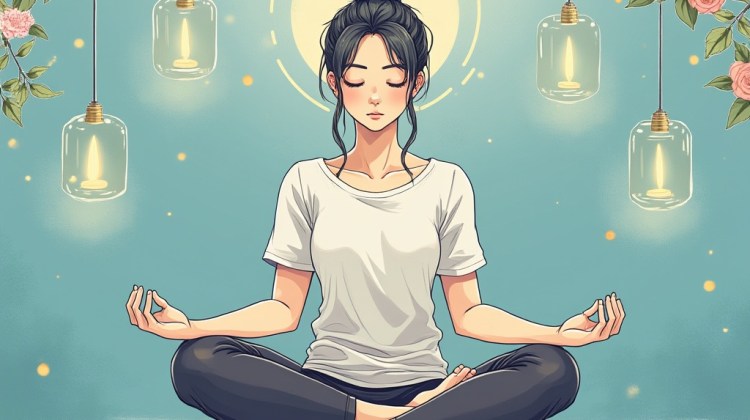
In the world of yoga, the allure of mastering complex asanas (poses) often overshadows one of the practice’s most fundamental and powerful elements: the breath. While the visual aesthetic of an impeccable pose might capture attention, the true essence of yoga lies in the breath. Focusing on the breath rather than the pose can revolutionize your practice, leading to profound physical, mental, and emotional benefits.
Yoga, derived from the Sanskrit word ‘Yuj’ meaning ‘to unite or integrate’, isn’t merely an exercise in physicality. It’s a holistic practice aimed at bringing together the body, mind, and spirit. Breath, or ‘Prana’ in yogic terms, is the life force that animates us all. When we shift our focus from achieving the perfect pose to the quality and rhythm of our breath, yoga becomes a meditative journey, transcending the physical into the realms of the spiritual.
Imagine your breath as an anchor during a tumultuous sea of thoughts. Every time you find your mind drifting to the mundane – the grocery list, an upcoming meeting, or what you’ll watch on Netflix tonight – your breath calls you back to the present.
This anchor effect isn’t just metaphorical. Focusing on your breath requires you to be here, now, engaging with the immediate sensation of inhaling and exhaling. This practice of mindfulness through breathwork can significantly enhance your ability to stay present, not just in yoga but in life’s daily activities.
One of the immediate benefits of focusing on breath during yoga is stress reduction. Modern life often keeps us in a state of heightened alertness, with the sympathetic nervous system (responsible for the ‘fight or flight’ response) frequently engaged. However, by engaging in deep, conscious breathing, we activate the parasympathetic nervous system, which promotes relaxation, lowers blood pressure, reduces cortisol levels, and enhances digestion.
When you focus on your breath, you naturally become more attuned to your body. This heightened awareness allows you to feel how each pose affects your breathing. Perhaps you notice that in Warrior II your breath shortens due to tension in your shoulders, or in Child’s Pose, your breathing deepens and slows, signaling relaxation. This feedback loop between breath and body position helps you adjust your poses for comfort and efficiency, reducing the risk of injury.
Breath and emotion are closely linked. Ever noticed how your breath quickens when you’re angry or shortens when you’re anxious? By controlling your breath, you can also influence your emotional state. A technique like ‘Ujjayi’ or ‘Ocean Breath’ where you constrict the back of your throat to create a sound like the ocean, can be particularly soothing. This practice not only centers you but also teaches you to manage emotions through physiological changes.
When breath becomes the focal point, yoga transforms into a form of moving meditation. Each inhale and exhale can be seen as a mantra, a rhythmic chant that guides you deeper into your practice. This meditative state isn’t about escaping reality but about engaging with it more fully. By syncing movement with breath, you’re not just exercising; you’re participating in a dance of consciousness, where each movement is both deliberate and flowing.
In yoga philosophy, breath is not just air; it’s prana, the vital life energy. Controlling and directing this energy through pranayama (breath control techniques) can lead to a profound sense of vitality. Breath acts as a conduit for this energy, distributing it throughout the body. When you focus on breath, you’re essentially managing your life force, balancing energies, and potentially activating chakras or energy centers, leading to enhanced physical health and spiritual awareness.
In yoga, the journey inward through breath is just as, if not more, important than the outward expression of asanas. By focusing on the breath, you’re not only improving your yoga practice but also cultivating a tool for life. This tool helps manage stress, enhance emotional well-being, and connect more deeply with the present moment. Remember, yoga isn’t about how you look in a pose but how you feel in your breath. Each breath is an opportunity to find stillness amidst movement, to balance the body, quiet the mind, and nourish the soul. Embrace the breath, and let it guide you not just through your yoga practice but through life itself.
Focus on the breath, not the pose.